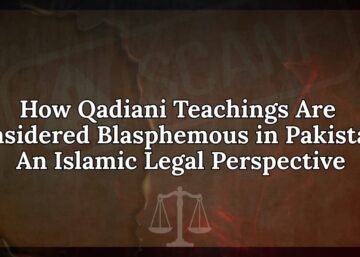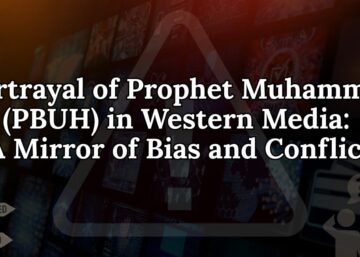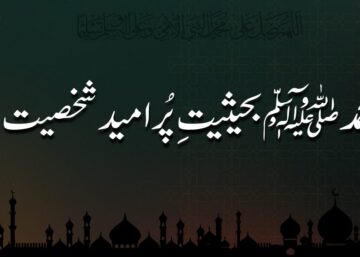The life of the Prophet Muhammad (PBUH) is one of the greatest examples of how transformative kindness and gentleness can be. Often referred to as “Rahmatan lil-Alamin”—a Mercy to all the worlds— his actions and personality carried an influence that was quite unparalleled by any other human being; it could soften the hardest of hearts, change hardened mindsets, and set a precedent for how humankind should treat each other. This approach was revolutionary for his time but continues to inspire and guide millions today.
And We have not sent you, [O Muhammad], except as a mercy to the worlds.
(Surah Al-Anbiya, 21:107)
French historian Louis Sedillot puts it,
It is such a distortion of historical facts that some writers accuse Prophet Muhammad of cruelty. They forget that he spared no effort in eliminating the inherited desire for revenge among Arabs, although revenge was highly esteemed in Arabia like fencing was in Europe. They do not read the Quranic verse by which the Prophet broke the horrible habit of burying newborn girls alive. They never think of the pardon he granted his worst enemies after the Conquest of Mecca. They neither consider the mercy he showed many tribes during the war. Do they not know he never misused his power to fulfill the desire for cruelty? If his Companions committed anything wrong, he would stop and correct them. It is well known that he refused the opinion of his close Companion, Omar bin al-Khattab, on killing the prisoners of war. When the time came to punish Banu Quraydha, he left the judgment to Sa’d bin Mu’adh, who used to be their ally and was well acquainted with rabbinic law. He also forgave Hamza’s killer and never refused any request for kindness and forgiveness.
Transforming Leadership: Power through Empathy
The leadership style of the Prophet Muhammad (PBUH) broke down all the traditions of authority. He did not gain strength through fear or intimidation but was a leader who could inspire the people with love and sympathy. He (PBUH) demonstrated how a leader could possess strict principles but still be humble and soft. For example, when a desert Bedouin seized his cloak and claimed charity in a rough tone, the Prophet (PBUH) reacted with a smile and approved his appeal. This rare amalgamation of tolerance and power redefined the mannerisms of true leadership.
Aishah (RA) was asked about the character of the Prophet (PBUH).
She replied:
“His character was like the Quran.” (Bukhārī, al-Adab al-Mufrad, 308).
He was walking and talking Quran.
Turning Enemies into Friends: Mercy towards Opponents
Among the most striking features of the Prophet Muhammad’s (PBUH) character are his treatment of opponents and his reaction to hostility. Right from the outset, it has been aligned with mercy and hope for possible transformation. When he (PBUH) was chased and wounded by the people of Ta’if, he did not curse them nor crave revenge; instead, he prayed for them, hoping that their progeny would lead to the truth. Reactions of this nature were never witnessed before, and the aftermath proved that even love can be a mighty power rather than revenge.
When he was sending Muʿādh (ra) as a governor to Yemen, he (PBUH) reminded him, “and show good manners in your dealing with others” ( Tirmidhī, k. Al-birr wa al-ṣilah ʿan rasūlillah ﷺ, b. Mā jā’a fī muʿāsharah al-nās, 1987).
Empower the Suppressed: Kindness as a Social Force
He (PBUH) was compassionate in words as well as deeds. His nature was to uplift all those who otherwise had been sidestepped by society; women, slaves, orphans, and people experiencing poverty were among them. He spoke up for their rights and treated them with dignity and respect, which was rare in the tribal Arab society of his times. He (PBUH) proved that a person’s worth is not in the richness or wealth he holds but in his character and faith. It transformed lives personally and created a community based on principles of social justice and mutual respect.
The Bequest of Tolerance
Prophet Muhammad (PBUH) makes enemies into friends through his magnificent forgiving ability. For all the persecutions he suffered in Makkah, he returned as a conqueror and still decided to forgive his past persecutors. The whole of the Arabian Peninsula was shaken by this unprecedented act of mercy, which established a new order in which victory was exercised through elegance and compassion instead of arrogance and retribution.
By God’s mercy, you [Prophet] were gentle toward them. If you had been rude and hard-hearted, they would have turned away from you.
(Surah Aal-Imran, 3:159)
A Revolution through Kindness: Lasting Impact
The Prophet Muhammad’s (PBUH) behavior showed the world that his actions had a ripple effect on generations and borders. His way of dealing with others, without considering their attitude towards him, brought about a peaceful revolution that changed a deeply divided society rife with bitterness into one community. He (PBUH) left behind a legacy of love, patience, and compassion that lives today, serving as a timeless guide on how to lead a meaningful life.
Michael Hart, who famously considered him the most influential man in history, wrote,
My choice of Muhammad to lead the list of the world’s most influential persons may surprise some readers and be questioned by others. Still, he was the only man in history who was supremely successful on both the religious and secular levels.
Conclusion: Changing the World One Act of Kindness at a Time
This quality of Prophet Muhammad (PBUH) changed the world not by the blade of his sword but through the power of mercy and softness. He (PBUH) proved then that hatred could be disarmed with empathy, broken bonds reconstructed with forgiveness, and softness that moves mountains. His approach illuminated humanity as proving that change begins not with grand gestures but with small acts of compassion that ripple out to reform entire societies.
It’s a reminder that, even in today’s world that is wracked with division and conflict, the character of Prophet Muhammad (PBUH) serves a reminder that a gentle heart and a merciful demeanor can indeed change the world, one person, one community, and one moment at a time.
Reference:
Michael H. Hart, The 100: A ranking of the most influential persons in history (New York: Hart Pub. Co., 1978), 21.
Louis Sédillot (d. 1875), Histoire des Arabes (Brief History of the Arabs), pp. 63-64 – published 1854



